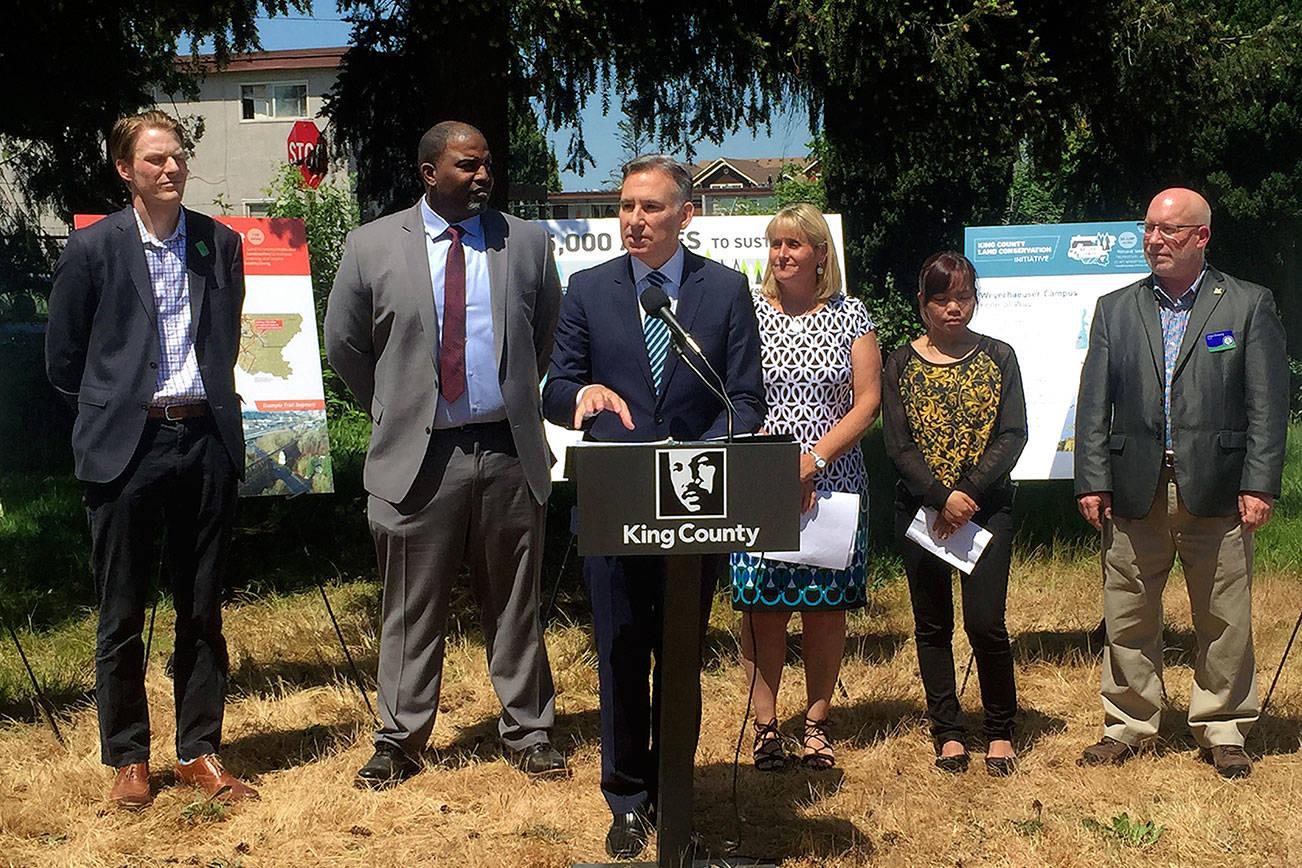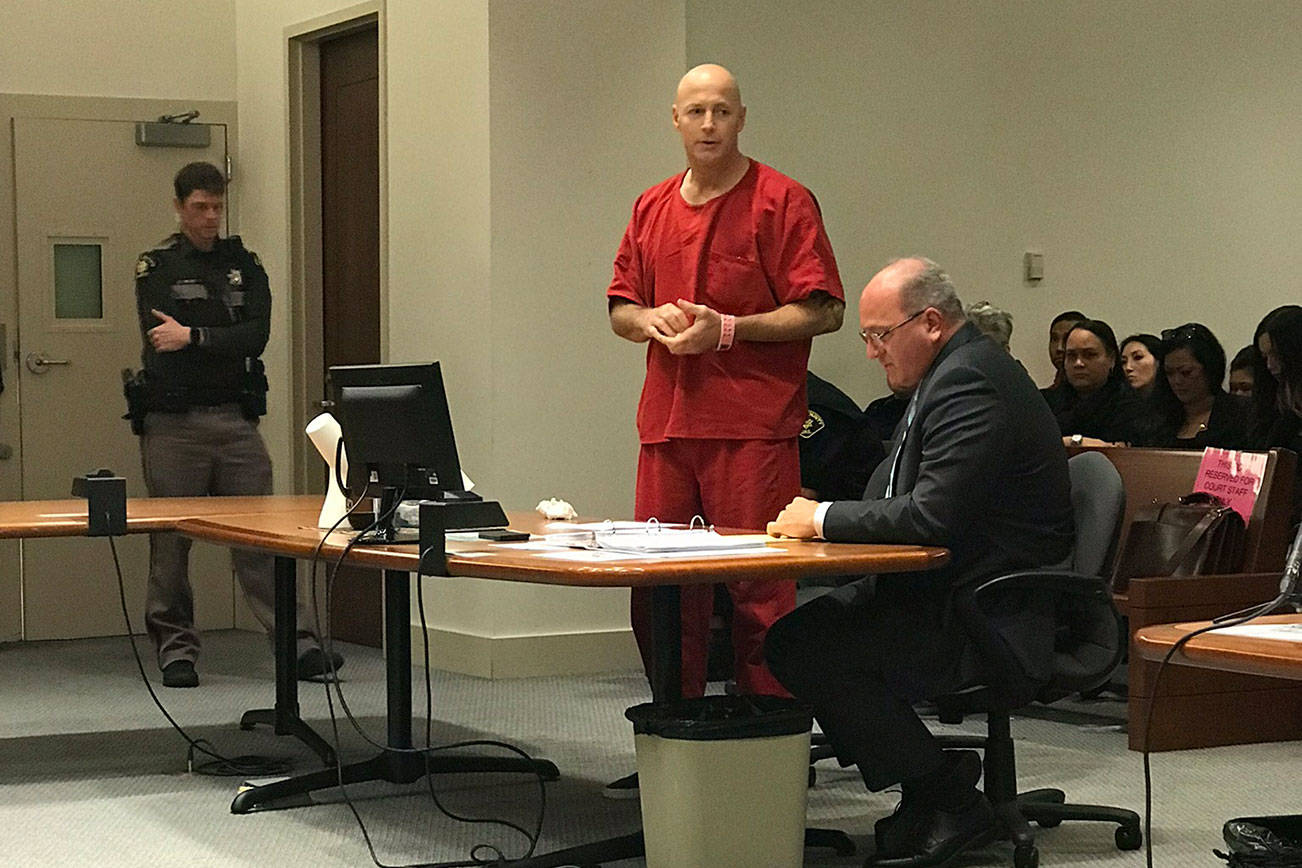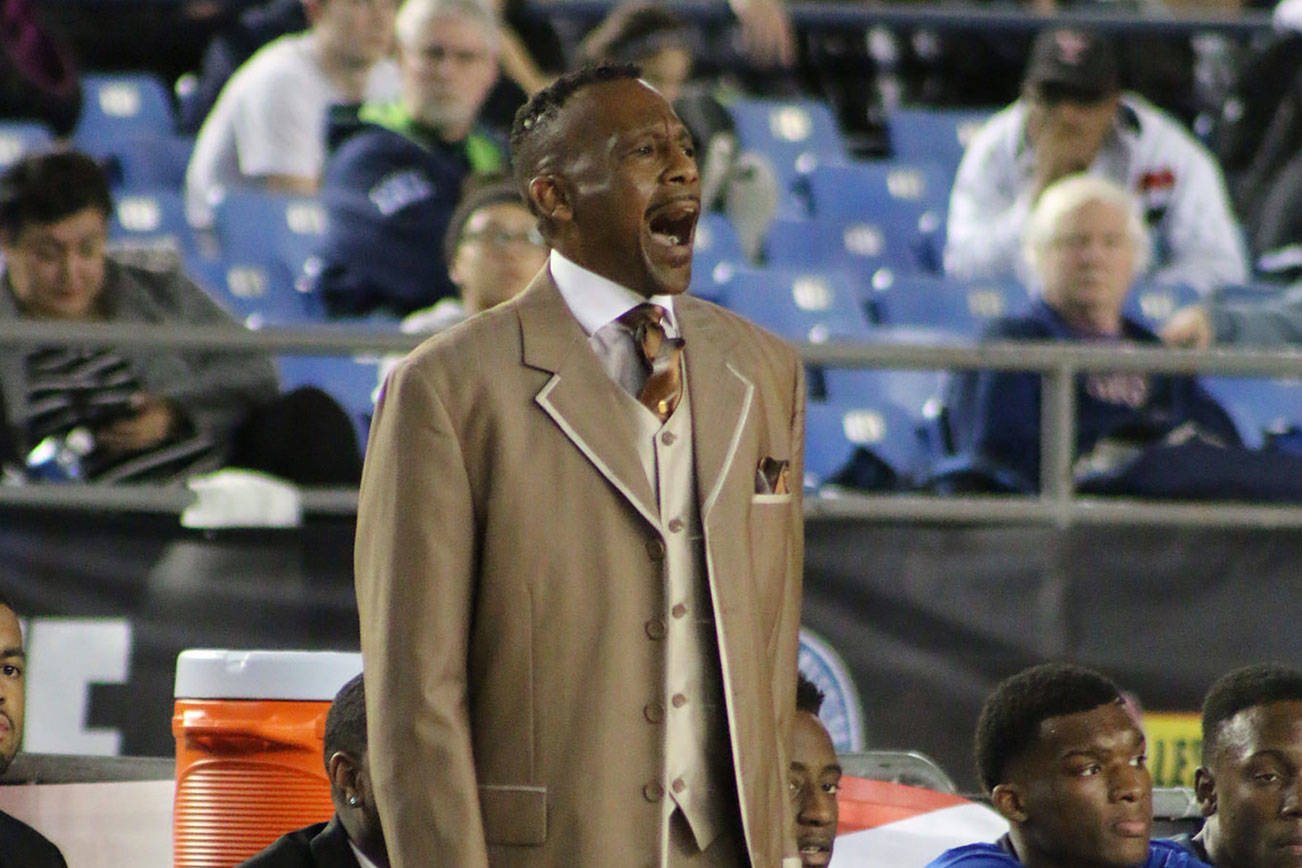The Puget Sound is known for the natural beauty of its lush green belts and idyllic shorelines, and King County Executive Dow Constantine wants to protect that aspect of Northwest identity by purchasing 65,000 acres of county land for conservation purposes.
The plan would acquire an estimated 13,500 acres of farmland, 125 miles of space for trails connecting Eastside cities, 20,600 acres of natural lands for wildlife and recreation, 2,400 acres of green and open space in urban centers, and 26,500 acres of forestlands. Purposed property purchases include land near the Tolt River for salmon habitat restoration, dairy farmland near Enumclaw, and the lakeshore trails on the Weyerhaeuser campus in Federal Way.
In a legislative initiative rolled out on May 23, Constantine seeks to finance the land acquisitions by selling bonds. The bonds’ value would be covered by the projected revenue from the Conservation Futures Tax—a property tax for land conservation established in 1982. The plan would bring in roughly $148 million over four years.
“This is an exciting moment to save the last best places in King County and make sure that every community has access to green space,” Constantine said at a May 23 press conference at a open parcel in Tukwila slated to receive funding to transform it into a urban green space. “Saving these places and creating green space for all is important to our future, and it’s as important as investments in affordable housing or in transportation or in any other aspect of infrastructure.”
Constantine said that the legislation will be sent to the King County Council on Thursday, May 24, for consideration.
Bob Burns, Deputy Director of the King County Department of Natural Resources told Seattle Weekly that—given the region’s explosive growth, increasing property values, and high demand for land for development—the county should act now to acquire land for conservation before it becomes more expensive.
Constantine reiterated this point. “We will be able to do this more effectively and less expensively if we act now.”
The 65,000 acres were identified by county officials over past several years and the selections were endorsed in December 2015 by the King County Land Conservation Advisory Group, a group of local elected officials and other stakeholders convened by Constantine.
Additionally, Constantine said that he will be establishing a new “open space equity cabinet” composed of “community leaders and residents” which would seek to reduce inequities in access to green spaces that exist between low-income communities and their wealthier counterparts.
Tukwila City Councilmember De’Sean Quinn framed the issue in social and economic justice terms at the May 23 press conference. “There are deserts of open space throughout King County, most of them in communities with the greatest and the most acute needs, where people and children cannot safely walk to a patch of green to relax, to de-stress, or to kick a ball around,” he said.
Research has found significant ties between access to green space and positive health outcomes, as well as spatial disparities along socioeconomic lines when it comes to access to parks and urban green space.
The legislation will also remove a cost-sharing mandate attached to the conservation fund that requires local jurisdictions to match county land conservation investments, a policy that officials say disadvantages small cities in the county with less-than-flush tax coffers.
“With the removal of the local funding match for communities like this, conservation futures funding is accessible to Tukwila,” Quinn said during the press conference at the open land parcel in Tukwila. “And now we will take action to purchase this property and turn it into a park for this community.”
jkelety@seattleweekly.com








